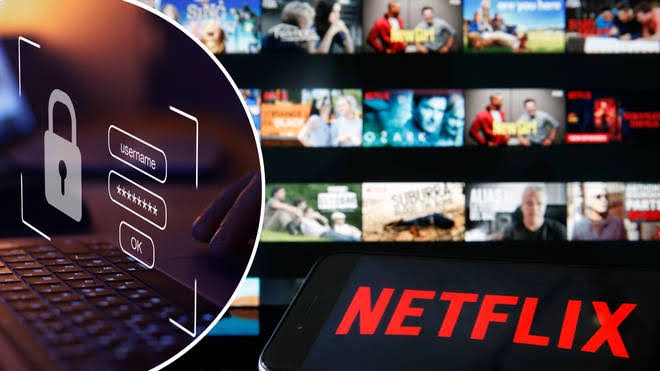Netflix Inc. will start cracking down on US viewers who use someone else’s account this quarter. This comes after the company beat Wall Street’s earnings estimates for the first quarter but gave a lighter-than-expected forecast on Tuesday when it reported its earnings for Q1.
Netflix hopes that charging these customers in the second half of the year, after putting off plans to crack down on unofficial password-sharing accounts until the second quarter, will even help its income and growth.
“We believe it will result in a better outcome for our members and our business,” the company said. Netflix also said it was “on track to meet our full-year 2023 financial objectives.”
In February, the business started rolling out its solution for sharing passwords, which includes a “paid sharing” option, in 12 countries but is holding off on expanding. It says it slowed down that action and went for a more gradual rollout to make changes. This delayed some financial benefits, but the company said it was happy with the results so far.
The streaming giant, whose user growth for the first quarter was lower than expected, has been trying out ways to stop people in Latin America from sharing accounts.
Read also: Netflix To Launch Ad-Supported Subscription Plan In November
Now that the company’s market is becoming more stable and saturated, it will try to build on the growth it saw in Q1 by slowly rolling out more strategies to cut costs and increase user subscriptions and revenue growth.
In a YouTube chat after the company’s earnings report, Chief Executive Ted Sarandos said, “We are growing and making money.” “We know exactly what to do to speed up both revenue and profit growth, and we’re doing it.”
The first quarter’s sales and profits were about what the average expert predicted, according to Refinitiv. With sales of $8.162 billion, each share was worth $2.88.
Netflix’s password-sharing Crackdown
Analysts believe that paid sharing has a significant potential to attract new consumers or increase sales. According to Netflix, more than 100 million users use accounts that they do not pay for.
“We value our members and recognise that they have many entertainment choices.” “A Netflix account is intended for one household,” the streaming company said in January.
The company then decided to make paid password sharing more common in the coming months. This was supposed to happen in the US in the first three months of the year, but it didn’t. Now, it says that it will do so in the next two months.
Netflix’s expansion beyond the US and Asia may worry African users, even if the deployment has yet to begin. Netflix may lose money if more users leave the platform.
At the end of 2021, Netflix will have 2.6 million African customers or 1.1% of its global total. By 2026, Africa will have 5.6 million Netflix members.
Netflix Q1 numbers
After the report, shares of Netflix fell as much as 11% in after-hours trading, but they bounced back to gain 1.4%. Analysts had predicted that the company would add 2.06 million streaming subscribers in the first three months, but it only added 1.75 million new customers.
In the first quarter, the corporation earned $1.31 billion and created $2 billion in free cash flow. After losing over 1 million members last year, the business added 100,000 US and Canadian customers. The password sharing crackdown may have cost Bloomberg Latin American subscribers.
Netflix has had another rough start to the year as it transitions from a high-flying marvel to a middle-aged star looking for its next big hit.
In the first half of 2022, the streaming service lost customers and grew by fewer than 9 million, the lowest rate since 2011, when it separated its streaming service from its DVD-by-mail operation.
Netflix’s “red envelope” DVD-by-mail service will stop permanently. After 25 years, it was closing its DVD delivery service.
“Those iconic red envelopes changed the way people watched shows and movies at home, and they paved the way for the shift to streaming,” Netflix Co-CEO Ted Sarandos said in a blog post announcing the DVD service had entered its “final season.”
Netflix has used the ad-supported tier for two years to recover from a slow start. The new $6.99 subscription tier includes 4 to 5 minutes of advertising per hour and costs $3 less than Netflix’s $9.99 most basic plan. The scheme also prevents users from downloading shows.
The advertising tier has not considerably improved user numbers since its November launch. Advertising and password sharing will contribute little in the first quarter, but they will grow over time, according to the company.




